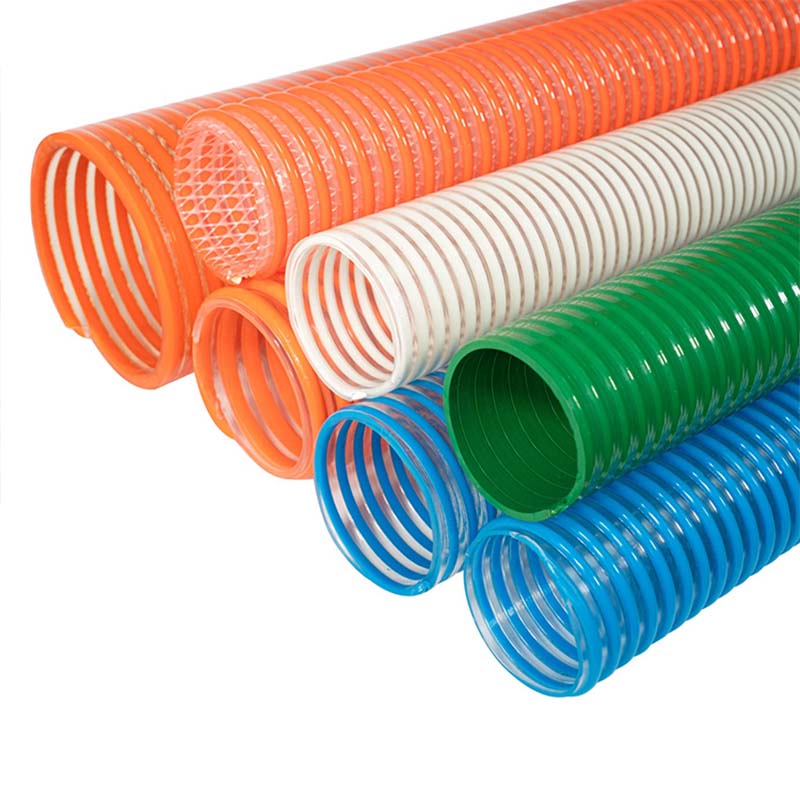air hose rubber vs pvc
Air Hose Rubber vs. PVC
When it comes to air hoses, two of the most common materials are rubber and PVC (polyvinyl chloride). Each type has its own set of advantages and disadvantages, making them suitable for different applications. Understanding these differences is crucial for anyone looking to choose the right air hose for their needs.
Rubber Air Hoses
Rubber air hoses have been a staple in various industries and applications for decades. One of the key advantages of rubber hoses is their flexibility. They remain pliable in low temperatures, allowing them to be easily maneuvered in tight spaces or around obstacles. This flexibility also makes them resistant to kinks and tangles, ensuring a steady flow of air.
In terms of durability, rubber hoses tend to have a longer lifespan compared to their PVC counterparts. Rubber can withstand more wear and tear and is less prone to cracking or splitting, making it ideal for heavy-duty applications. This durability extends to temperature resistance as well; rubber hoses can handle extreme temperatures, both hot and cold, without losing their structural integrity.
Moreover, rubber hoses typically offer greater resistance to abrasions, chemicals, and UV rays, making them suitable for outdoor use and industrial environments. They are often preferred in construction sites, automotive shops, and other scenarios where hoses are subjected to rough handling or harsh conditions.
However, there are some downsides to rubber air hoses. They are generally heavier than PVC hoses, which might make them less convenient for prolonged use or transport. Additionally, the cost of rubber hoses tends to be higher than that of PVC hoses, which could be a consideration for budget-conscious consumers.
PVC Air Hoses
air hose rubber vs pvc

On the other hand, PVC air hoses have gained popularity, especially in lighter applications. One of the main advantages of PVC hoses is their lightweight nature, making them easy to handle and transport. This is especially beneficial for DIY enthusiasts or anyone who needs to move around frequently while working.
Another advantage of PVC hoses is their cost-effectiveness. They are typically cheaper than rubber hoses, making them an attractive choice for those on a budget or for occasional use. Despite being economical, modern PVC hoses can still provide decent durability and performance for a wide range of applications, including air tools, inflating tires, and general-purpose work.
However, PVC hoses do have their limitations. They are less flexible than rubber hoses, particularly in cold temperatures, which may hinder performance in certain environments. PVC can also become brittle and may crack over time, especially when exposed to UV rays or extreme temperatures. This makes PVC hoses less suitable for heavy-duty or outdoor applications where durability is crucial.
In terms of chemical resistance, PVC hoses tend to perform well but may not withstand exposure to certain solvents or oils. Users must be mindful of the specific applications for which they intend to use PVC hoses to ensure compatibility.
Conclusion
In conclusion, the choice between rubber and PVC air hoses ultimately depends on the specific needs of the user. Rubber hoses are ideal for heavy-duty applications requiring high durability, flexibility, and resistance to extreme conditions. They are well-suited for industrial use and environments where wear and tear are common.
Conversely, PVC hoses are well-suited for lighter applications where ease of handling and cost-effectiveness are priorities. They are ideal for DIY projects, home use, or tasks that do not involve extreme conditions.
When making your decision, it's essential to consider factors such as the environment in which the hose will be used, the frequency of use, and the specific tasks it will be required for. By understanding the strengths and weaknesses of both rubber and PVC air hoses, you can make an informed choice that best meets your needs. Whether you opt for the durability of rubber or the lightweight convenience of PVC, having the right hose can make your projects much easier and more efficient.
-
Top Quality Oxy Acetylene Hoses for Sale Fit for Welding DemandsNewsJul.28,2025
-
The Future of Pneumatic Air Tubes in IndustryNewsJul.28,2025
-
Superior and Reliable LPG Hose Pipe Solutions for Every NeedNewsJul.28,2025
-
Exceptionally Durable and Versatile Premium Braided PVC TubingNewsJul.28,2025
-
Best Adapters for Connecting Garden Hose to PVC Pipe ConnectionsNewsJul.28,2025
-
The Essential Role of LPG Hoses in Safe and Efficient Gas DistributionNewsJul.16,2025














